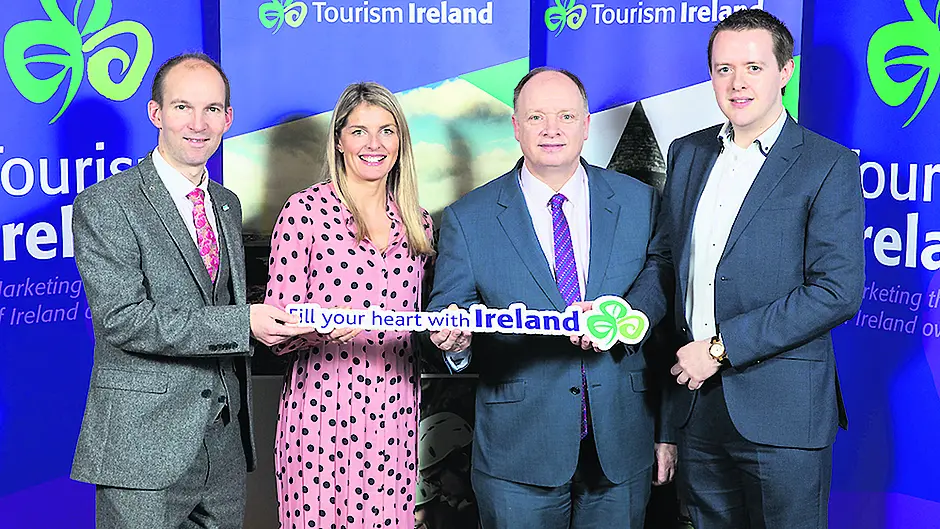TOURISM Ireland has launched details of its new three-year strategy for 2020-2022 and its marketing plans to promote the island of Ireland overseas next year, at an event attended by 500 tourism industry leaders from around the country, including Pure Cork, Cork Airport and the Celtic Ross Hotel in Rosscarbery.
The aim is to grow overseas tourism revenue to €6.54bn (up by 13%) and visitor numbers to 12 m (up by 7%), by 2022.
The 2020-2022 strategy has been designed to be both flexible and sustainable – while delivering further growth in overseas tourism and supporting the industry across Ireland, a spokesperson said.
‘Tourism Ireland aims to spread the benefits of tourism more broadly across Ireland on a year-round basis and to address the issues of capacity, to ensure the visitor experience continues to be world-class. The new strategy is built on a set of sustainable destination marketing principles,’ they added.
Phase two of Tourism Ireland’s global campaign – ‘Fill Your Heart With Ireland’ – was revealed at the launch. As in phase one of the campaign, the new ad features some less-visited attractions and locations and will be rolled out in over 20 markets around the globe.
The period 2020-2022 will see Tourism Ireland transform its digital platforms and re-develop its entire suite of Ireland.com websites – which attracted more than 23 million visits this year.
It will use big data and artificial intelligence to reach potential visitors. New technology will also allow Tourism Ireland to re-target visitors and potential visitors with personalised messages and offers, designed to appeal to their specific interests.
This past year has been a very mixed one for Irish tourism, the State agency said, with weaker demand and the continued uncertainty around Brexit giving rise to consumer concern in Britain and some mainland European markets.
There has also been a deterioration in air access capacity this year, it stated. ‘Latest estimates indicate that, by year end, revenue generated by international visitors will be around €5.78bn, down 1.4% on last year, with a stalled figure of 11.17m people having visited the island.
It says the upcoming year will ‘undoubtedly continue to present some challenges’, not least the ongoing uncertainty around Brexit, which is likely to continue to impact on consumer confidence and, in turn, on travel from Britain and some mainland European markets. ‘Other challenges may include economic and geo-political uncertainty, as well as constraints on the availability of aircraft (particularly relating to the grounding of the Boeing 737 MAX).’










